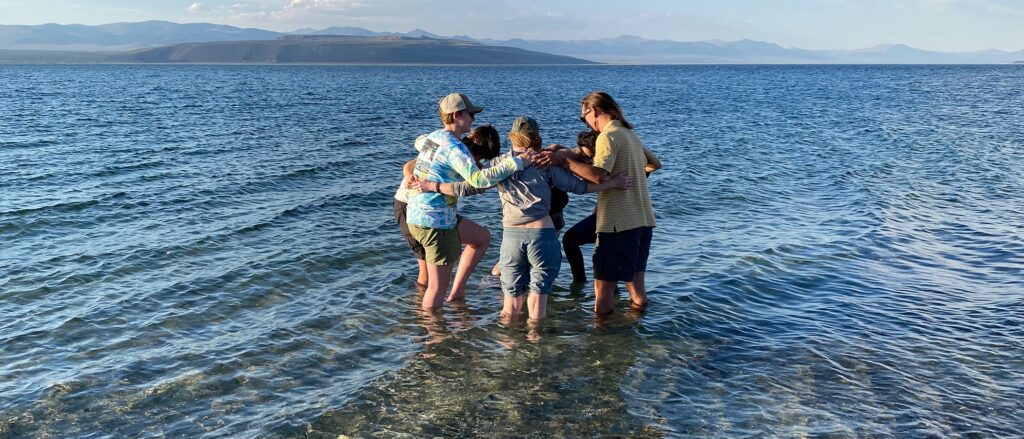
Published on the Mono Lake Committee’s blog on August 19, 2024
Every summer, the Mono Lake Committee hires interns who work in interpretation, education, science, information, and more, while living in Lee Vining for the months they work here. Many permanent staff at the Committee today will tell you how they started their time here as interns, and after their first summer, decided they were going to come back in the future.
I currently work as a Project Specialist at the Committee, but I lived my whole life in Lee Vining before leaving for college in 2019. I will always remember the way town feels seasonal by its nature—as the weather transitions from feet of snow to hot, dry desert sun, the number of people you might pass while walking from the post office to the market changes, too.
How is it that Mono Lake Committee summer staff end up working and living here in the first place? What stories do they have about what brought them to Mono Lake this summer? To learn more about these questions, I spoke with eight seasonal staff working at the Mono Lake Committee this summer: BreeLynn Butler, Diego Murguia, Karis Sabraw, Chris Hamilton, Dana Diaz, Alden Seiberling, Via Ruiz, and Sophie Coyne. The interviews have been lightly edited for clarity.
BreeLynn Butler, Mono Lake Intern
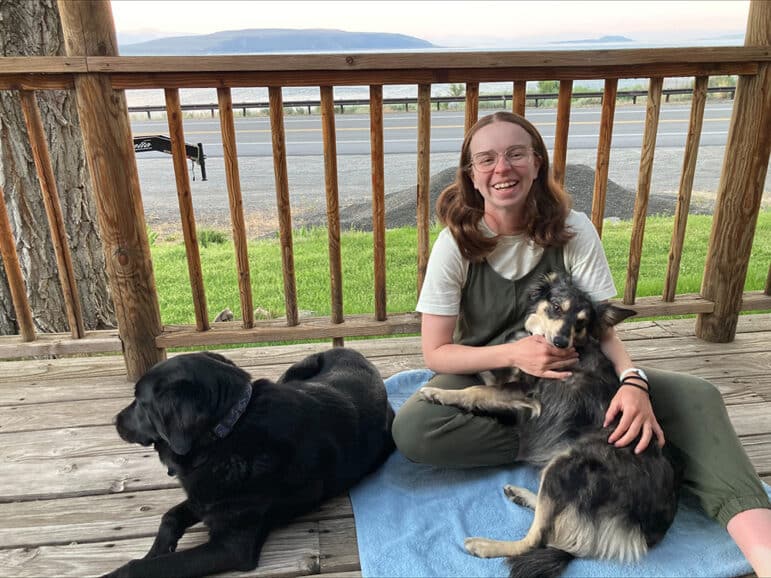
BreeLynn Butler: I’ve been coming up here ever since I can remember. My parents would take us on vacation up in Bridgeport, basically ever since I was a baby, until I was sixteen. A week of my summers, growing up, would be in the Eastern Sierra. We’d go to Mono Lake, or up to Tioga Pass, and stop at the gate to look at the snow, go hiking, or fishing in the lakes and streams nearby.
Caelen McQuilkin: What made you decide you wanted to come live here for a full summer?
BB: I’ve always just loved visiting here, and then as I got older, I was like, ‘man, it would be cool to spend longer than a week here.’ Last summer, I started looking for jobs that were specifically in the Eastern Sierra. I explored the website a little bit more and I saw there are internships that open up every January.
CM: Now being here for longer, are there things you’ve learned more about, or things that have changed the way you see this place in your life?
BB: I think after spending some time here, I’m like, ‘okay, I could totally see myself staying here longer.’ Because it’s a really special place, and I’ve learned a lot more about Mono Lake, specifically, the history of it, the policy side. I feel like I’ve learned a lot about just how connected everything is here, and especially how it’s all connected to the water.
CM: Have you been going back to any places where you went when you were younger, or is it kind of like you’re seeing a new part of the Eastern Sierra now?
BB: I think it’s funny spending Wednesdays working at the [Mono Basin National Forest Scenic Area] Visitor Center, because I grew up going to that museum, and walking around. I remember going on the back patio and looking at the Cliff Swallows. It’s just funny—now I’m working there, so it’s kind of crazy.
Diego Murguia, Mono Lake Intern
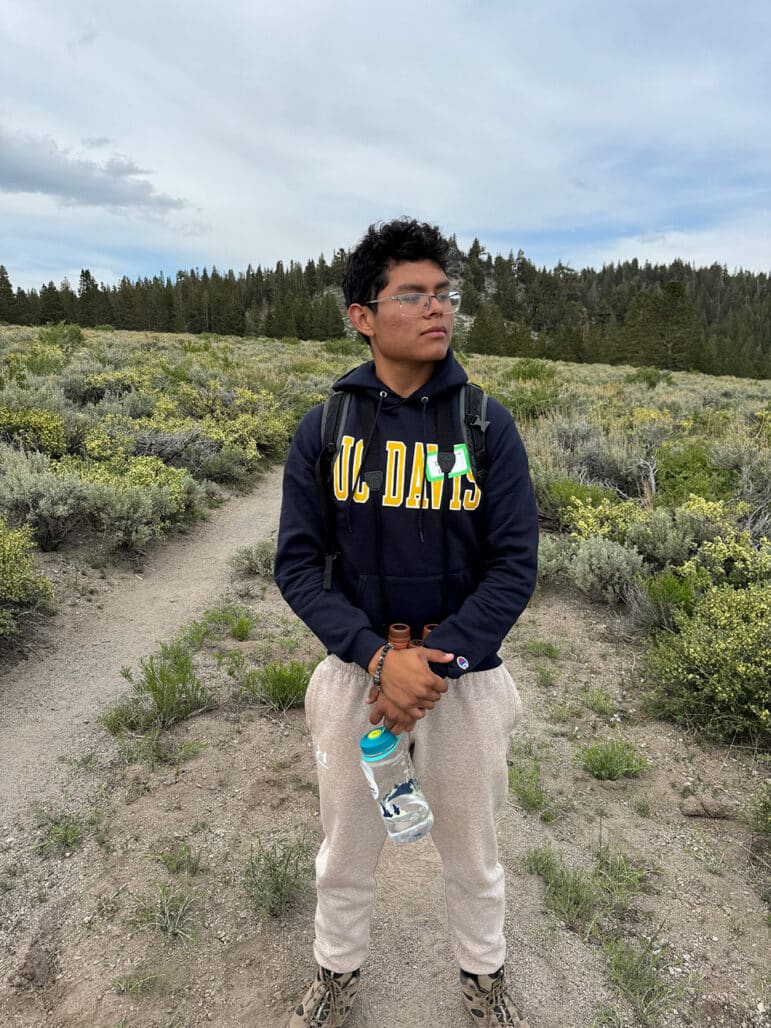
Diego Murguia: For me, it’s different. I’ve lived in the area for all my life, and I really didn’t go to Mono Lake as much as everyone else has. Instead, I found out about the Mono Lake Committee because my family would come here to use the fax machine. I’d walk by [the Committee] every day, but I’d really never come in, except for one time with my cousins. We asked, ‘hey, can we watch the Mono Lake movie?’ I was eight years old. And so we watched the movie.
When I was growing up, my mom would work mornings, afternoons and nights, so there would be no one to take me to the lake. It was very rare that my mom and I would ever go down to the lake. But ever since I started working here, I’ve gone more and more. So many more times. And I’ve taken my mom more, now that I have a license and can drive. We go there pretty often now.
CM: I’m wondering, what changed that led you to be working here now?
DM: I joined Experience Ambientalia. When I joined that program, I learned more about environmental ideas at Mono Lake. As we were approaching the summer, [Mono Lake Committee Education Director] Ryan told everyone in the program about the internship here. And I for sure said ‘yep, I want to intern.’ I want to see if I can. That’s how I got here, is through Experience Ambientalia. Without being in that program, I don’t think I would have been here.
CM: Do you think the way you see this place is different now, after Experience Ambientalia, and working here?
DM: For sure. I remember before Experience Ambientalia, coming in here with the Argentinian students visiting, and I didn’t recognize anything in the store, or the interns at the checkout. Now being here, I understand it more.
I think one thing I’ve learned is being more attentive and nice to people that come in and it’s their first time in the area. They’ll ask, ‘where do I go to see those tufa rocks?’ and I’ve learned my response: ‘okay, I’ve got a map here. Here’s where we are, that’s where you want to go.’ What that’s also taught me is to give accurate measurements of how far it is. I say, ‘five miles to the turn off,’ or, ‘it’s about 15-17 minutes until you get there.’
Also, everywhere else, I’ve worked with people that are somewhat my age, and here, it’s a balance where they’re not really my age, but a bit older. It’s fun though. I’ve never had relationships like this with coworkers, where we actually hang out after work.
Karis Sabraw, Information Center & Bookstore Assistant
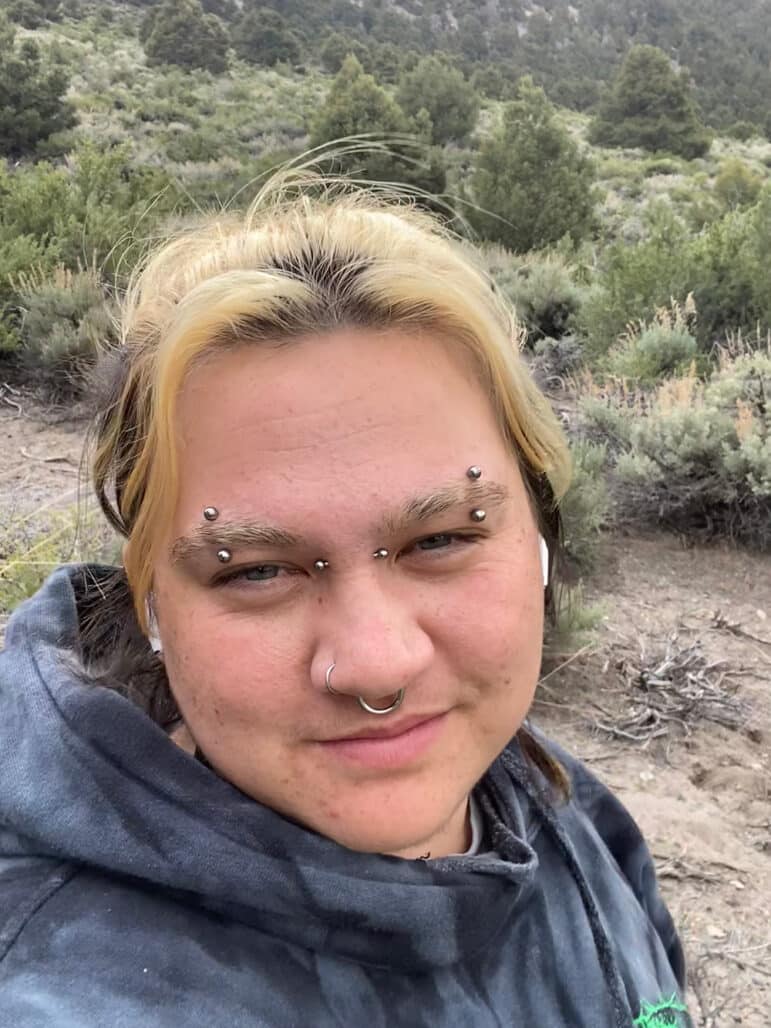
Karis Sabraw: I’ve driven through here basically every single year since I was born. My family and I would come up to Tuolumne, and we’d occasionally go to Mono Lake. I think I have a picture of me when I was ten, down at the tufa. Last year, we came up here, and we were going to go up to Tuolumne, but the pass was still closed, because it was after the big winter. So we just spent our time down here. We camped in Lee Vining Canyon, and then we did the canoe tour. I was looking for jobs at that time, so I asked the interns what they did to get the job. I applied in January, and now here I am.
CM: How has it been now that you’ve been here for longer than your visits in the past?
KS: It’s great. I love it here. I like that it’s very peaceful here, and I like being surrounded by nature. There’s too many people and too many buildings in Santa Barbara.
CM: What have been some of your favorite places to spend time around here?
KS: I like going down by Lee Vining Creek. I go down off the trail and sit by the river. It’s nice, and peaceful. It’s so beautiful down there. I also love Lundy Canyon. That’s my favorite hike of all time.
CM: The other thing I’m curious about in your story here is, I know you are going to stay longer, through the winter. How do you feel about experiencing another season here?
KS: I’m excited. I’m so excited to see the fall. I love fall, when the leaves change. But I feel like I’m equally excited and nervous for winter. There’s no weather in Santa Barbara. I don’t know what cold is, I don’t know how to shovel snow or chop firewood or put chains on my tires. I’ll have to learn a bunch of new stuff, which is exciting.
Chris Hamilton, Mono Lake Intern
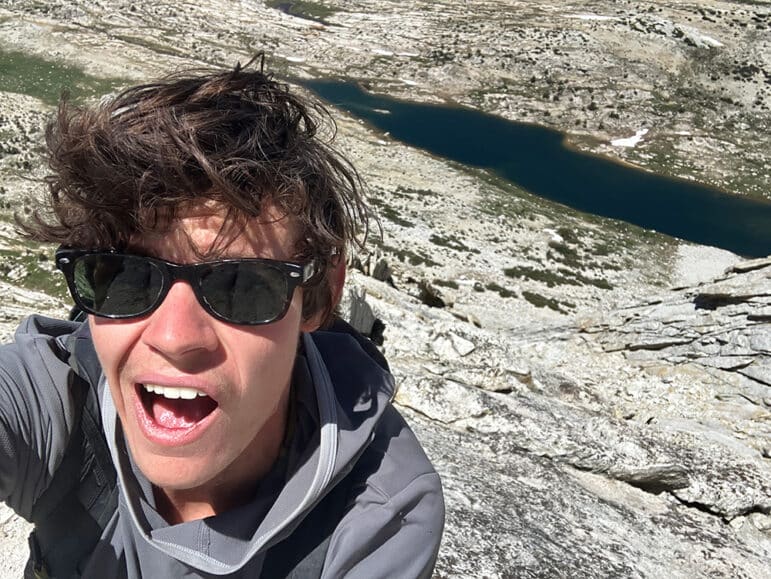
Chris Hamilton: I started coming here, I think, because I came to Yosemite to rock climb. [Later, in the summer of 2023,] I was like ‘I think Lee Vining would be a really great place to be.’ I got offered a job at the ESIA bookstore, and I was like, ‘oh, do I choose [Yosemite] valley or the east side?’ And I think where I was at in life, the east side [felt like] more what I want. I felt, kind of like people say a lot, very drawn to how open it is. I really like the open sagebrush. I worked at the ESIA bookstore last summer, and then I became friends with [Mono Lake Committee Canoe Coordinator] Juniper. Juni was like, ‘you should look into the Mono Lake Committee!’ They were telling me how people here do projects, and tours, and canoeing, and it sounded cool. I knew I wanted to come back to this area, so I figured this could be a cool way to do it. And I think the Mono Lake Committee is interesting, kind of as an environmental case study. [Part of] my interest in journalism is these environmental issues and the movements that coalesce behind them. The Mono Lake Committee seemed like a really interesting part of that.
CM: That’s a really interesting story, how you learned about so many places around here, and they kind of led you on a path towards Lee Vining.
CH: It kind of traces a path in my life, too. When I first got out of high school, I was eighteen, in the pandemic, and all that I thought I cared about was going rock climbing all the time. I feel like the valley kind of embodies that. And as I’ve, I guess, matured and have more life experience, I’m like, ‘okay, that’s not really all I care about. There’s way more important things to me.’ Being out in open places is more important to me than the actual climbing is. I feel like that transition is the same, from starting in the valley to ending up over here, where it’s so much more than just the mountains.
CM: What has it been like for you to return back here again?
CH: I think familiarity is so cool. You start going to a place because you recognize some value of the place, and then as you stay somewhere longer, you kind of develop this familiarity, this relationship, more with the place. And the longer you hang out somewhere, the more of those places you have. I feel like that here. When I even just go down to the lake, I remember all these different things—I remember the first time swimming in Mono Lake, I remember doing this hike up to Rush Creek. It’s like, the more time you spend somewhere, the more depth that place becomes for you, or develops. And you start to notice a lot more little things.
Dana Diaz, Information Center & Bookstore Assistant
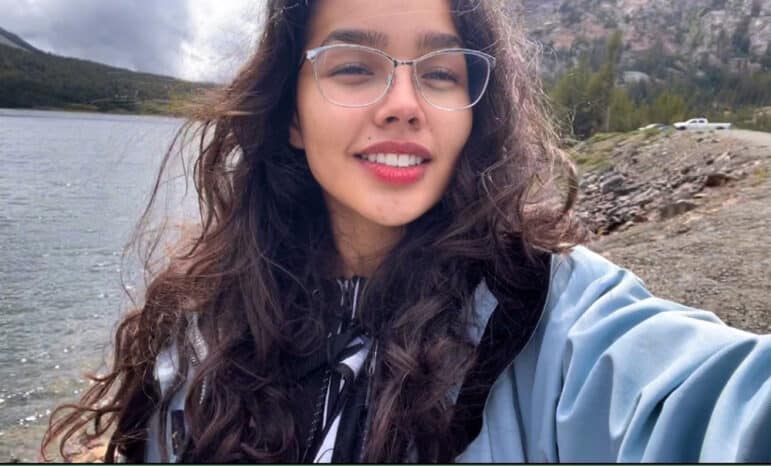
Dana Diaz: It was September of last year, 2023. I came out here on a work trip with East Yard Communities for Environmental Justice, which is a non-profit I was working for at the time. I came out here on that work trip to learn about the Los Angeles Aqueduct, and the history of water with this area. We were out here for a week, and I completely fell in love with the place. I fell head over heels. And I told myself, ‘I need to come back and live here.’ And so when the opportunity presented itself—Santiago had been down in LA for a dinner we were hosting, and [he] told me about the position—I applied the same day. I made it happen.
I always had the very clear intention of coming here to uplift my community. I do want to gain experience and meet new people, but the ultimate goal has always been to take my experiences and the opportunities and information that I gain, and take it back to where I’m coming from. I come from a low-income community, I’m first-gen. And so I look back at myself as a child, I imagine myself, and I’m like, ‘okay, what did little Dana need, or want?’ I just try to think about that, and I really try to think about my community. I try to remember where I came from. And the people in the community that nurtured me to be who I am. I wouldn’t be here if it wasn’t for those experiences.
CM: How has it been for you, experiencing living here for longer?
DD: Living out here for longer has really helped me form a deeper connection with the people and the land and the water. And I think it changed me as a person. That’s what I’ve come to learn in the years of experience I have in organizing, is that transformative organizing also changes the organizer themself. And I feel like this is one of those experiences that has played a really pivotal role in developing, nurturing who I am, and who I’m going to be as a person in the future.
CM: That’s such an amazing way to describe that, how you change with organizing, too.
DD: Yeah. I think this is definitely one of those formative experiences, that I’m going to look back on and be like, ‘wow. That really changed the course of my life.’
Alden Seiberling, Mono Lake Intern
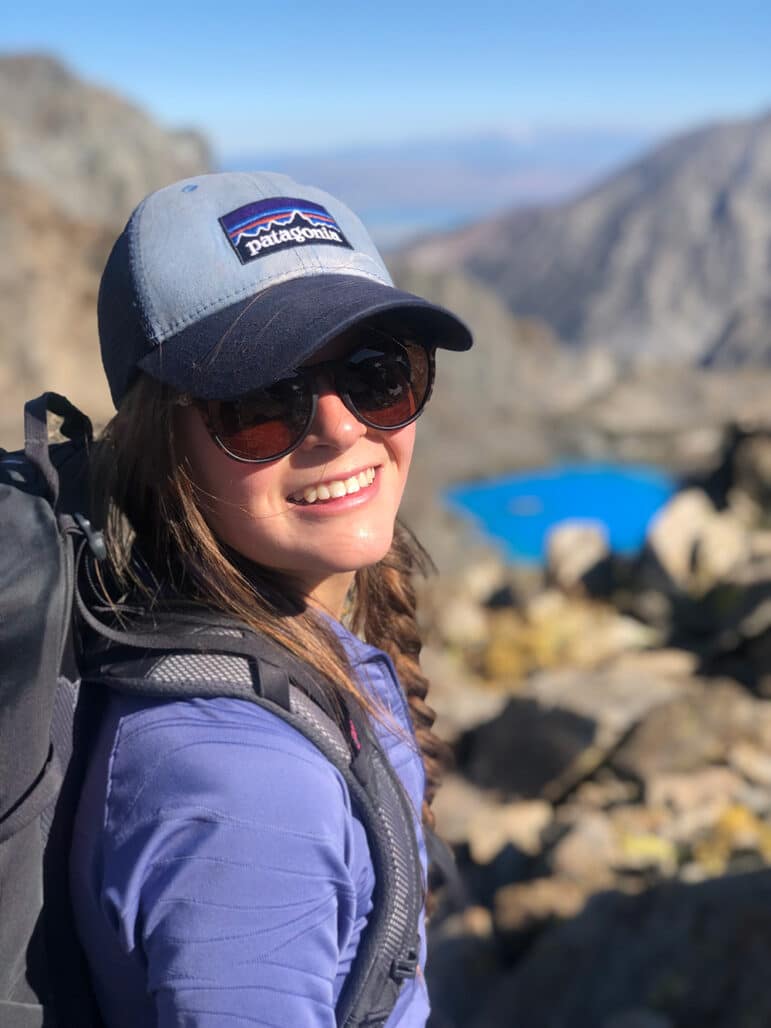
Alden Seiberling: Well, I’ve lived here my entire life. I’ve always just been really into the outdoors, and hiking with my family, backpacking, skiing. Obviously, we’re neighbors, so you know. Like, I see your mom skiing.
CM: Yeah, we’re on the same page about that one. How did you find out about the Mono Lake Committee, and working here?
AS: I’ve always really known about the Mono Lake Committee, just because a bunch of my neighbors work there. And then on school field trips and stuff, we did the canoe tours down at Mono Lake at least a couple of different times. So I’ve known about the diversions and fighting to keep water here.
CM: How did your summer internship here start?
AS: I’m in a program called Experience Ambientalia, and that program is led by [Education Director] Ryan, so he told us all about the job. Before, they had only really hired people from out of town, out of town interns. This year, for the first time, they did a high school internship, so I applied.
CM: What does it mean to you to be working somewhere new, in a place where you’ve lived your whole life?
AS: I think it’s an advantage in a way, because I don’t have to take the time learning about the area first. I’ve had a lot of fun giving people directions and stuff, and learning more about the place, too. There’s a lot of stuff I shockingly don’t know.
Via Ruiz, Field Monitoring and Reporting Intern
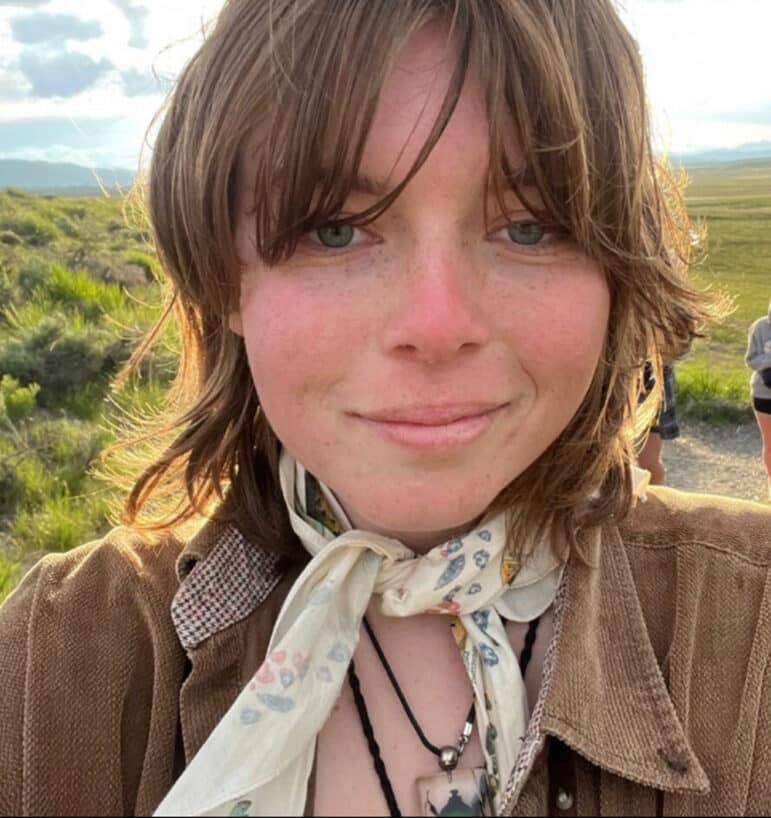
Via Ruiz: I first came here last summer, 2023, on a field course with Grossmont Community College. I got the South Tufa tour from [Education Director] Ryan Garrett. It was so awesome, I cried. And I realized I wanted to work here and I wanted to come back. So I applied for the internship in winter, I got the job, and here I am.
CM: What were some of the first things you noticed about being here?
VR: How beautiful it was. For sure. And just the specialness of the area. That’s what first drew me in, and the story of Mono Lake was really awesome.
CM: Are there any moments from that trip that you remember, other than the tour, that made you think, I might want to come back here?
VR: Yeah. We went to Mono Cone after. Just kidding. We did go to Mono Cone after—but [it was] just the trip in general, being here and seeing how beautiful it was, and the history of this place is so incredible … I’m so lucky getting to be here. I had never heard of Mono Lake before my trip. It was awesome. It was definitely an experience to remember, and I wouldn’t trade it for the world.
CM: How does it feel to be living in a place for a season and knowing that you’re going to leave for school at the end of the summer?
VR: That’s a sad question. It’s really sad. But it’s also… I think it makes it more valuable. It’s a very bittersweet experience—getting to really know and fall in love with the place, and then having to leave it. But I think I’ll always love the Eastern Sierra, and I’m going to try my very hardest to come back here and stay here.
Sophie Coyne, Birding Intern
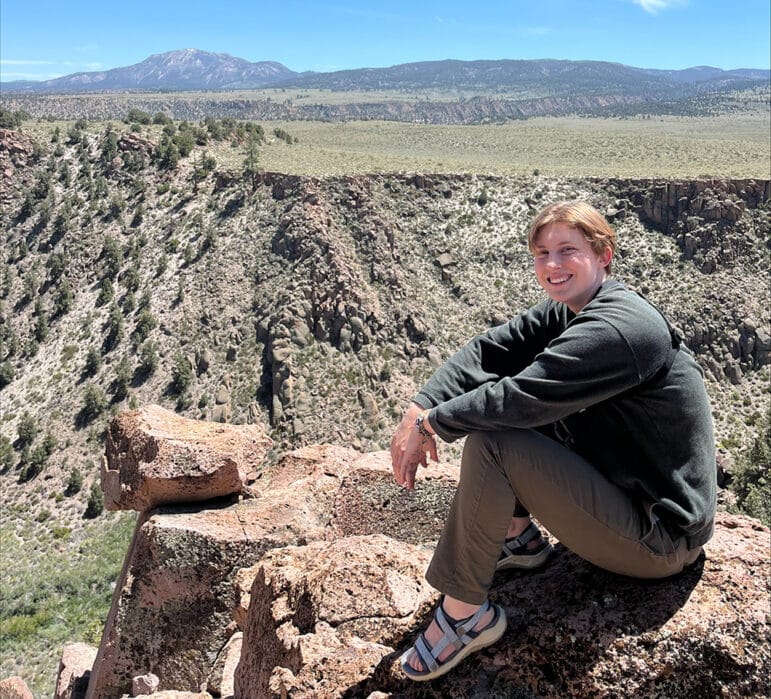
Sophie Coyne: I was scrolling through ornithology job boards, and applying to anything I seemed qualified for, because I was getting ready to graduate college. I had honestly never heard about Mono Lake at all, didn’t know anything about it whatsoever. I was talking to people about it, I’d be like, ‘yeah, this random place in California, Mono Lake,’ and they’d be like ‘Mono Lake?? You have to go.’ Multiple people I encountered. I had a professor who had actually done geology research out here, and when I told her, she screamed. She was so excited.
CM: Had you ever been to California before?
SC: Nope. I had never been west of Chicago. It really was, I kind of just packed up [from Western Massachusetts] and said, I’ll figure it out once I get there.
CM: What are some unexpected things about this region of California, for you?
SC: I had never thought so much about water. And how water gets places, thinking about water rights. There’s so much water where I’m from, that our issue is, we’ve had a lot of flooding. And so I never thought so much about water policy and water jurisdictions.
CM: How has it been living in such a different area for the summer?
SC: It’s been so incredible. It’s beautiful out here, and I’ve been able to explore so many new places. It’s just so different from where I grew up, and I think I was really looking for that right after graduation, the chance to go somewhere else. It’s been really cool to explore, and it’s cool being in a place that’s so dedicated and passionate and feels like a success story in a lot of ways. It’s very inspiring work.
To sum up
I think that part of what makes this place special is the way so many different people learn to love and care for it. There are endless stories about where that care begins for people, and where it ends up taking them, and this summer I feel lucky to have met the seasonal staff, who show me more about what it means to love this place. As they begin leaving this week, the impact they’ve made here is clear.
Find more information about seasonal staff positions and how to apply at our jobs page.
Top photo by Elin Ljung.